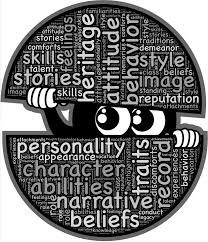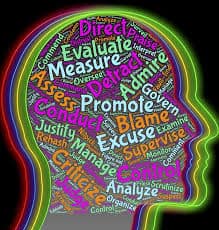It was a three-way tie for a senior executive position and, as a means of gathering more information to assist with the final decision on this recruiting process, each candidate was requested to complete an online personality assessment of 80 questions. The resulting 15-page reports were available immediately and the candidates received a summary as well, to guide their own career development.
One of the many scales that were reported on during recruiting included one entitled “Comfort With Conflict” and one of the candidates had an extreme score on that scale which  revealed that they were so comfortable with conflict that they enjoyed it and would likely seek to create conflict! Not surprisingly, this information made it relatively easy to exclude that candidate and to move on to selecting the right individual.
revealed that they were so comfortable with conflict that they enjoyed it and would likely seek to create conflict! Not surprisingly, this information made it relatively easy to exclude that candidate and to move on to selecting the right individual.
Read More: Tragic Air Crash Leads To The Search For A New President
Many companies and recruiters use personality assessments to screen potential candidates. These assessments can help with hiring decisions by allowing you to evaluate the personality of the candidate before you move forward in the recruiting process. Common personality assessments include the Myers-Briggs Type Indicator (MBTI), Caliper Profile, Facet5, StrengthsFinder, and DiSC. These assessments range from economical to expensive and work in many different ways. In our own recruiting firm work at Kathbern Management, we have found that the array of assessments available through the Self-Management Group www.selfmgmt.com have been very useful.
Personality assessments can help you weed through potential candidates by screening for the right set of characteristics from the start. They can help you reduce turnover by narrowing the candidate pool, and help you find a candidate who is a better overall fit for your team. If you’re lacking a certain type of person, a personality test can help you zero in on the specific type you’re looking for in the recruiting process. Some companies also choose to test their current employees when considering project teams, seating plans, and restructuring.
While personality assessments can be a great hiring tool, they also come with their flaws. As with any digital, automated test, personality assessments as a hiring tool need some perspective. It’s important to consider the needs of your hiring process and team before relying on personality assessments as a primary tool in your hiring kit.
Read More: Top 8 Common Recruiting Mistakes (And How to Avoid Them)
Here are some pros and cons of using personality assessments for recruiting.
Pro: Personality Assessments Give You More Insight When Recruiting
 Hiring for the right fit is important, as you want to minimize turnover. Personality assessments allow you to get to know people better before you move on to detailed discussions and an offer. These tests allow you to focus on the top candidates, and they allow you to avoid wasting time in an extensive recruiting process with someone who doesn’t fit at all.
Hiring for the right fit is important, as you want to minimize turnover. Personality assessments allow you to get to know people better before you move on to detailed discussions and an offer. These tests allow you to focus on the top candidates, and they allow you to avoid wasting time in an extensive recruiting process with someone who doesn’t fit at all.
You can also test for certain problem-solving skills, allowing you to get a better feel for how a candidate would perform at your company or in a specific department or role. If someone tests well in one area and not another, you can probe more on those areas in interviews and get a more complete picture of how this candidate would perform in their role.
Con: Personality Assessments While Recruiting Aren’t An Exact Science
You shouldn’t depend on personality assessments as the main source of hiring decision information. First of all, candidates can try to “game the test”, choosing answers they think you would like, rather than answering truthfully. There is the possibility of “cheating” by choosing the “best” answers instead of the honest ones. For example a question regarding telling the truth – who would want to answer that truthfully?! Of course, every candidate is going to choose the best possible answer if you’re asking them about integrity on a test. (Note: Some tests are designed to catch cheaters by asking the same question in several different ways and revealing the resulting inconsistencies. They may also include questions which are “black and white”, for which only one of the two answers is possible, and highlight candidates who waffle. For example, only a “yes” or “no” answer is possible to the statement “I have never lied”, so candidates who answer “sometimes” are waffling and may not be fully truthful about other aspects of the test.).
Secondly, assessments don’t take into account the working environment when providing the results. Someone who is more laid back and thoughtful might make a great leader, whereas someone who is aggressive and self-assured might make a terrible manager. Take the personality assessments as part of the entire picture and make a decision using all available information.
Pro: Personality Assessments While Recruiting Allow You To Understand The Person You’re Hiring
Personality assessments can reveal a candidate’s working style, motivations, strengths, and weaknesses. This is great insight when coaching them and pairing them with a manager or mentor. If someone is a visual learner, it wouldn’t be advisable to put them in a room with a manual to read for training. Better instead to give them some hands-on experience. Getting this insight up front also allows you to better place a candidate on the right team and on the right projects.
Con: Assessments Can Take Time And Money During The Recruiting Process
Personality assessments do come at a cost, and you can pay anywhere from $100 for a simple online profile to $5,000+ for a complete psychological assessment  including many tests and a detailed report from a registered psychologist on an executive search. The online assessment is affordable for almost every role, whereas a more extensive evaluation can be a useful and worthwhile investment for very senior positions. Certainly, a different approach must be taken when recruiting for senior positions vs. more junior ones.
including many tests and a detailed report from a registered psychologist on an executive search. The online assessment is affordable for almost every role, whereas a more extensive evaluation can be a useful and worthwhile investment for very senior positions. Certainly, a different approach must be taken when recruiting for senior positions vs. more junior ones.
Pro: Assessments Make For Better Rounded Teams
As mentioned earlier, personality assessments aren’t just useful in the recruiting process. It’s never too late to have your team take personality assessments to see how they can work more efficiently together, with better flow and less conflict. If you’re wondering how to give your team a productivity boost and offer coaching opportunities, get to know their personality styles better.
How to Use Them Assessments Correctly When Recruiting
If you choose to use personality assessments in your pre-screening process, make sure you use them correctly.
Here are a few best practices:
- Only perform assessments for short listed candidates
- Properly communicate with each candidate – Ensure you explain the confidentiality and what these assessments will be used for
- Follow-up after the test
- Use the personality assessments in conjunction with all other recruiting assets, such as resumes, phone screening, interviews, and references
- Find the best personality assessment for your hiring needs – Do your research!

It’s incredibly important to try and hire the best person for your team, and personality assessments are a great tool to help you do so. Like anything with hiring, it’s always important to cover all of your bases. Personality assessments cannot be taken as the be-all and end-all, and it’s up to you and your team to use them correctly so you don’t make a bad hire or miss out on a good one.
When you reveal the personality behind the candidate, it can help you hire the right person you need for the team instead of hiring someone you happen to like.
Kathbern Management is a Toronto-based recruiting firm focused on working with organizations who are seeking to find and hire the key people who are critical for their success.
Contact us today for a free consultation about your key person search.

